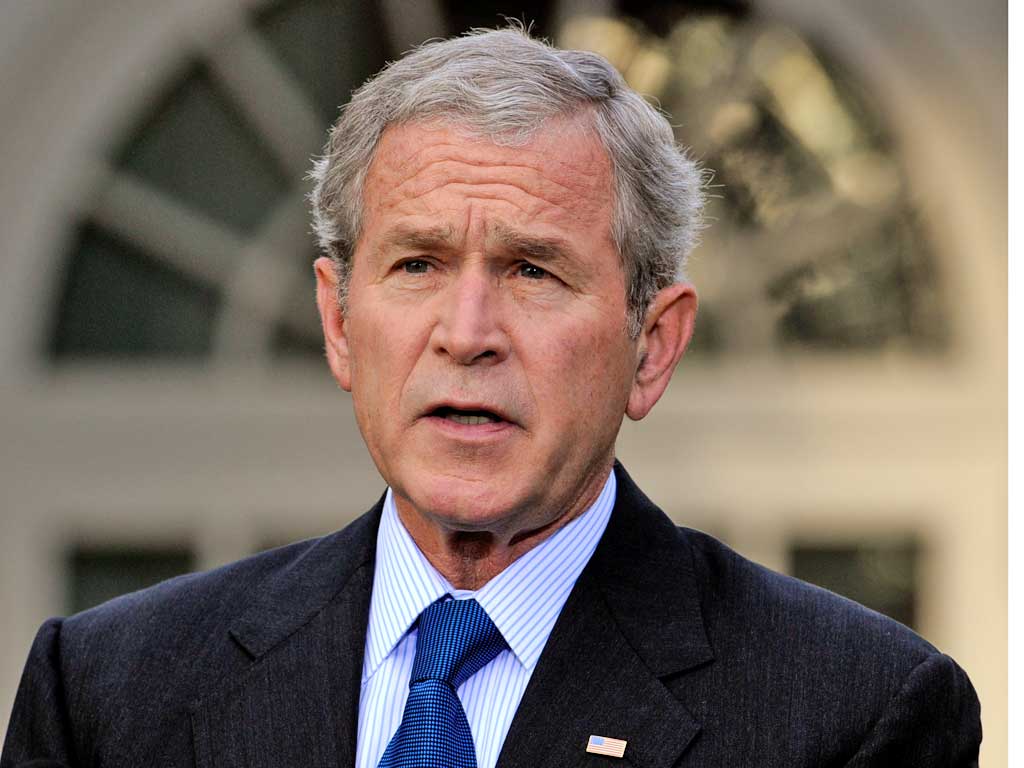Revealed: how George W Bush offered to bring Iran back into the international fold

Your support helps us to tell the story
From reproductive rights to climate change to Big Tech, The Independent is on the ground when the story is developing. Whether it's investigating the financials of Elon Musk's pro-Trump PAC or producing our latest documentary, 'The A Word', which shines a light on the American women fighting for reproductive rights, we know how important it is to parse out the facts from the messaging.
At such a critical moment in US history, we need reporters on the ground. Your donation allows us to keep sending journalists to speak to both sides of the story.
The Independent is trusted by Americans across the entire political spectrum. And unlike many other quality news outlets, we choose not to lock Americans out of our reporting and analysis with paywalls. We believe quality journalism should be available to everyone, paid for by those who can afford it.
Your support makes all the difference.Iran spurned a previously undisclosed American offer from President George W Bush of talks aimed at reaching a "grand bargain" over long-standing differences between Washington and Tehran, a leading figure in the country's theocratic regime has revealed.
The proposal was made in 2004 – before the controversy over Tehran's suspected nuclear plans reached a crisis point resulting in sanctions – and passed on to Hassan Rowhani, head of Iran's supreme national security council at the time, by the then director general of the International Atomic Energy Agency (IAEA), Mohammed el-Baradei.
It was rejected on the orders of Iran's Supreme Leader, Ayatollah Ali Khamenei, the Islamic system's most powerful cleric who has the final say over all state matters. "The decision was taken by the nezam [system] that that we shouldn't at that point negotiate with America," Mr Rowhani, who led Iran's nuclear negotiating team under the reformist former President Mohammad Khatami, told an Iranian magazine, Mehrnameh.
His disclosure casts new light on the efforts to repair US-Iran relations, which have been frozen since the 1979-81 takeover of the US embassy in Tehran by Islamist revolutionaries. It may also be seen as an effort by Iranian pragmatists to pressure Mr Khamenei into being more flexible in the revived nuclear talks due to resume in Baghdad on 23 May.
Previously, the Bush administration has been seen as hostile to rapprochement with Iran, while Barack Obama is credited with departing from that policy by offering to "reach out a hand" to Tehran.
Analysts have cited the rejection of an earlier Iranian request to open negotiations in 2003 in the aftermath of the US-led invasion of Iraq. That proposal – communicated through the Swiss embassy – was reportedly knocked back by the White House with the rejoinder: "We don't talk to evil."
However, Mr Bush apparently took a different tack when Mr Baradei visited Washington in the spring of 2004 to discuss Iran. He proposed that Tehran send an official to America with "full authority" to negotiate "all issues".
Mr Bush reportedly made his surprising offer when Mr Baradei urged US participation in the negotiations over the Iranian nuclear programme, being led at the time by the European trio of Britain, France and Germany. "Bush in response said: why the nuclear issue? Why don't we solve all the issues between us," Mr Rowhani recalls Mr Baradei quoting the US President.
The IAEA chief was so taken aback that he phoned Mr Rowhani asking for an immediate meeting in Tehran. Referring to Iran's rejection, Mr Rowhani compared the difference between talking to the Europeans and the US to that between travelling in a Peykan, an Iranian car based on the Hillman Hunter, or a Mercedes Benz. "Our decision was not to drive the Mercedes Benz, so we drove the Peykan," he said.
Join our commenting forum
Join thought-provoking conversations, follow other Independent readers and see their replies
Comments